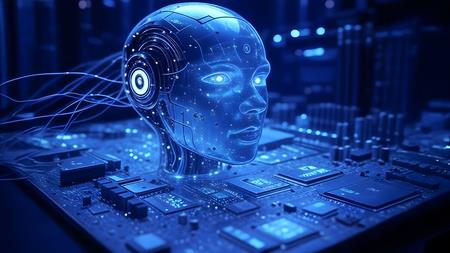40 Pc Of Enterprise Apps Will Feature Task-Specific AI Agents By 2026: Report
"As organisations accelerate digital transformation, agentic AI in enterprise applications will move beyond individual productivity, setting new standards for teamwork and workflow through smarter human-agent interactions," Gartner Inc., a business and technology insights company, said in a report.
According to Gartner, agentic AI will drive approximately 30 per cent of enterprise application software revenue by 2035, surpassing $450 billion, up from 2 per cent in 2025.
“AI agents are evolving rapidly, progressing from basic assistants embedded in enterprise applications today to task-specific agents by 2026 and ultimately multi-agent ecosystems by 2029,” said Anushree Verma, Sr Director Analyst at Gartner.
This shift transforms enterprise applications from tools supporting individual productivity into platforms enabling seamless autonomous collaboration and dynamic workflow orchestration, she added.
According to the report, Chief Information Officers (CIOs) have a crucial three to six month window to define their agentic AI strategy, as the industry is at an inflexion point.
"Organisations that do not embrace agentic AI promptly risk falling behind their peers. Managing strategic priorities requires a focussed approach across the five stages of agentic AI evolution," the report stated.
Gartner's report predicts that by the end of 2025, almost every enterprise application will have embedded assistants, transforming inefficient Apps into intelligent systems that operate on users' behalf.
AI assistants are the precursor to agentic AI.
They simplify tasks and interactions for users but depend on human input and do not operate independently.
The most common misconception is referring to these AI assistants as agents, a misunderstanding fueled by widespread“agentwashing.”
“CIOs and technology leaders must focus on creating seamless employee experiences by integrating AI assistants with robust APIs, enabling a shift from traditional application-centric interfaces,” said Verma.
The report further predicted that by 2026, AI assistants will evolve into AI agents with task specialisation, a significant step towards true agentic capabilities.
According to the report, by 2027, one-third of agentic AI implementations will combine agents with different skills to manage complex tasks within application and data environments and by 2028, AI agent ecosystems will enable networks of specialised agents to dynamically collaborate across multiple applications, allowing users to achieve goals without interacting with each application individually.
"Meanwhile, by 2029, at least 50 per cent of knowledge workers will develop new skills to work with, govern and create AI agents on demand for complex tasks," the report highlighted.

Legal Disclaimer:
MENAFN provides the
information “as is” without warranty of any kind. We do not accept
any responsibility or liability for the accuracy, content, images,
videos, licenses, completeness, legality, or reliability of the information
contained in this article. If you have any complaints or copyright
issues related to this article, kindly contact the provider above.
Most popular stories
Market Research

- United States Lubricants Market Growth Opportunities & Share Dynamics 20252033
- UK Digital Health Market To Reach USD 37.6 Billion By 2033
- Immigration Consultancy Business Plan 2025: What You Need To Get Started
- United States Animal Health Market Size, Industry Trends, Share, Growth And Report 2025-2033
- Latin America Mobile Payment Market To Hit USD 1,688.0 Billion By 2033
- United States Jewelry Market Forecast On Growth & Demand Drivers 20252033






















Comments
No comment